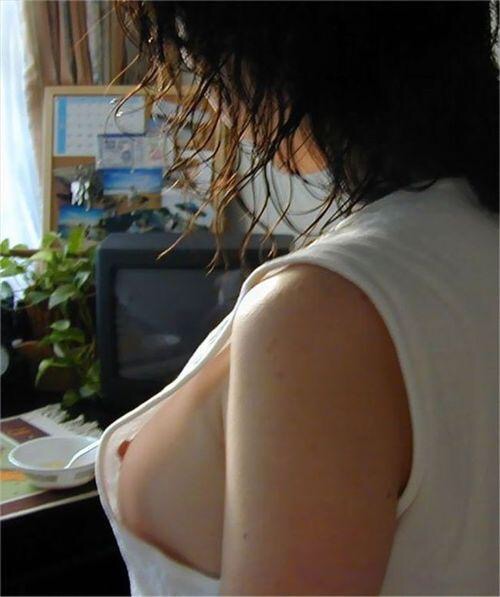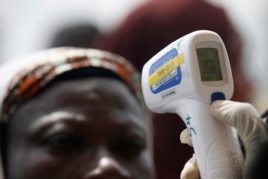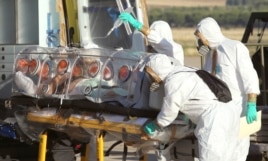Việt kiều già ham cỏ non

Hội câu Sài Gòn” khi chat ăn mặc khá kín đáo và chỉ làm như vô tình để hở những chỗ cần hở, nói năng rất tình cảm, lịch sự. “
Với các cô, con mồi lý tưởng nhất là những con “cá” già”
1.001 cách thả mồi của hội ‘câu’ Sài Gòn
Ái Liên khẳng định với tôi: “Tụi em chỉ làm quen với các anh Việt kiều rồi nếu mấy ảnh về Việt Nam thăm nhà hay du lịch, tụi em tình nguyện làm người hướng dẫn.
Sáng thứ bảy, tôi gọi đến số máy của Ái Liên mà anh Quyên Ca đã chuyển cho tôi. Thoạt đầu, giọng cô có vẻ ngập ngừng nhưng khi biết tôi là bạn thân của “Việt kiều David Chương” thì cô đổi tông ngay. Sau vài phút trò chuyện, cô mời tôi trưa mai – Chủ nhật, gặp cô tại quán cà phê M. trên đường Nguyễn Du, quận 1, TP.HCM.
10h45 sáng Chủ nhật, đang trên đường đến cà phê M. thì điện thoại tôi báo có tin nhắn. Mở ra xem, đó là tin nhắn của Ái Liên: “Em xin lỗi vì sự thay đổi này. Mời anh qua quán cà phê S ở đường Nguyễn Lương Bằng, khu Phú Mỹ Hưng, em đợi”.
Gần 11h30, tôi đến cà phê S, một quán khá sang trọng. Sau khi điện thoại để biết chỗ Ái Liên đang ngồi, tôi đến bàn cô. Ái Liên ở ngoài khác hẳn với tấm hình cô dán trong hồ sơ trên trang web VietS nhưng tôi vẫn phải công nhận cô khá đẹp, chỉ mỗi tội là cô hút thuốc lá như ống khói tàu. Suốt cuộc chuyện trò, cô hỏi tôi về “David Chương” và dĩ nhiên là tôi trả lời làu làu.
Ngược lại, cô cũng kể về “David Chương” y như cô là người yêu của ông Việt kiều “6 bó” – nhưng chưa hề tồn tại trên cõi đời này: “Tụi em không phải là gái mại dâm đứng đường, gái gọi hay thứ gì đại loại như thế…”.
Ái Liên khẳng định với tôi: “Tụi em chỉ làm quen với các anh Việt kiều rồi nếu mấy ảnh về Việt Nam thăm nhà hay du lịch, tụi em tình nguyện làm người hướng dẫn”. Tôi hỏi: “Hướng dẫn như vậy thì có thù lao gì không?”. Ái Liên cười: “Tùy lòng hảo tâm của mấy ảnh chứ em đâu đòi hỏi, chủ yếu là mở rộng giao lưu, thêm bè thêm bạn thôi mà”.
Cuối cùng, cô đi thẳng vào vấn đề: “Anh Chương nói là anh sẽ đưa tiền cho em để em lo cho má em…”. Tôi hỏi má cô hiện nay đang nằm khoa nào, phòng nào, giường số mấy ở Bệnh viện (BV) Chợ Rẫy thì cô đáp: “Em chưa đưa má vào vì chưa đủ tiền”. Tôi nói, đại ý sáng mai tôi sẽ cùng cô đưa má cô vào BV, và tôi sẽ lo toàn bộ viện phí thì cô có vẻ bực dọc: “Má em đang ở dưới quê”. Tôi nói tiếp: “Vậy em về quê đưa má lên đi”.
Lần này Ái Liên đứng dậy, mặt cau có: “Thôi, khỏi làm phiền anh nữa, để em gọi anh Chương. Ảnh nói vì anh thiếu nợ ảnh nên em mới gặp anh chứ không thì ảnh chuyển tiền về cho em từ bữa kia rồi”.
Với các cô “thợ câu”, Việt kiều càng già càng dễ “câu”.
Tôi cố nín cười. Đúng lúc đó một cô gái khác, tuổi xấp xỉ 40 bước đến: “Ê Phượng, thằng chả email cho mày chưa, cái lão ở Thụy Sĩ đó?”. Tôi thấy mặt Ái Liên – bây giờ là Phượng – hơi tái đi: “Ủa, chuyện đó ăn nhằm gì tới bà mà bà thắc mắc”.
Rồi Phượng bước thẳng, không buồn chào tôi. Đến chiếc ghế sắt đặt cạnh bức tường gần cổng ra vào dành cho nhân viên bảo vệ, Phượng ngồi xuống, móc điện thoại bấm nhoay nhoáy. Một lát, chắc là không liên lạc được, cô ra bãi để xe, leo lên chiếc Air Blade màu đỏ phi một lèo.
Tôi chào, cười xã giao với cô gái vừa mới hỏi Phượng rồi mời cô ngồi, trong đầu thầm nghĩ thế là xôi hỏng bỏng không. Người duy nhất có thể giúp tôi khai thác về “Hội câu Sài Gòn” là Phượng thì xem như đã đứt bóng! Tuy nhiên, lần này tôi gặp may. “Nhìn anh chắc không phải Việt kiều?”. Tôi gật đầu. Cô gái – mà sau đó tôi biết tên là Nhi – nói tiếp: “Mọi bữa tụi nó đi cả hội nhưng bữa nay nó đi một mình. Anh mà là Việt kiều thì chắc con Phượng nó luộc anh rồi”.
Nhắm có thể tìm hiểu “Hội câu Sài Gòn” từ Nhi, tôi kể vắn tắt cho cô nghe chuyện Phượng quen David Chương, bạn tôi, rồi chuyện má Phượng bị ung thư, chuyện David Chương nhờ tôi đưa tiền cho Phượng. Nhi cắt ngang lời tôi: “Vậy anh đưa cho nó chưa?”. Tôi lắc đầu, tôi bảo sẽ cùng Phượng đưa má cô ta vào BV rồi tôi thanh toán toàn bộ viện phí, lấy hóa đơn gửi qua Mỹ cho bạn tôi thì Nhi cười khẩy: “Má nó giờ này đang đánh bài tứ sắc ở nhà chứ ung thư ung trứng gì”.
Theo lời Nhi, “Hội câu Sài Gòn” của Phượng gồm 6, 7 người, đôi lúc lên đến 10 người, tất cả đều có học, nhiều người nói tiếng Anh như gió: “Em cũng tham gia với tụi nó…” nhưng có lẽ biết mình nói hớ nên Nhi thòng thêm: “Mà thấy kiểu này không thọ nên em rút lui lâu rồi”. Vẫn theo lời Nhi, những cô trong nhóm “Hội câu Sài Gòn” thường xuyên săn lùng con mồi trên các trang mạng kết bạn bốn phương như VietS, VietCute, Twoo, Badoo…
Hễ thấy ông Việt kiều nào cỡ từ 50 – 60 tuổi trở lên, lai lịch, nghề nghiệp coi được – nghĩa là khả năng có “đôla” là họ tạo hồ sơ làm quen: “Quá trình làm quen thì cũng y như ông bạn anh vậy – cũng bắt đầu từ email, cũng chat.. Con Phượng anh gặp hồi nãy chẳng hạn, có thời gian nó quen 9 ông, có ông nó là em kết nghĩa, có ông nó là cháu tinh thần và có ông nó là người yêu bé bỏng. Anh mà thấy nó chat anh mới kính nể. Cùng một lúc, nó chat với cả… 9 ông nhưng ông nào cũng tưởng nó chỉ chat với một mình ổng”.
Khác với gái mại dâm, gái chat sex kiếm tiền bằng cách cởi quần áo ra rồi kêu con mồi nạp thẻ cào điện thoại để được xem cởi tiếp, “Hội câu Sài Gòn” khi chat ăn mặc khá kín đáo và chỉ làm như vô tình để hở những chỗ cần hở, nói năng rất tình cảm, lịch sự. Khi biết chắc cá đã cắn câu, họ đột ngột không liên lạc nữa để tạo cho con mồi tâm lý lo âu, thắc mắc. Sau đó họ mới đưa ra lý do “má em bệnh”, hoặc “em bị mất xe”, hoặc “em bị giật cái túi xách, mất điện thoại, laptop, mất giấy tờ, mất hết cả tiền”, “em bị tai nạn”, “nhà em bị bão thổi sập”…
Và thế là không nhiều thì ít, những đồng đôla bay về. Nhi kể có ông Việt kiều “7 bó” ở Mỹ, sau thời gian quen nhau trên mạng với một cô trong “hội”, ông về Việt Nam để gặp người tình trong mơ. Qua vài lần đi chơi, ăn uống với nhau, cô gái bé bỏng của ông than thở, rằng đi làm mà không có xe, phải đi xe buýt cực muốn chết. Ông hỏi chiếc xe gắn máy bây giờ khoảng bao nhiêu tiền, cô nói mua xe mới đắt lắm nhưng cô có người bạn đang muốn bán lại chiếc Dylan, hồi đó mua gần 100 triệu nhưng vì là chỗ thân tình nên bạn cô “để rẻ” cho cô 60 triệu thôi.
Vậy là, ông Việt kiều móc túi đưa cô 3.000 “đô” mà không hề biết chiếc Dylan đó là hàng nhái của Tàu, chủ nhân của nó đã chạy đến rệu rã và rao bán với giá chỉ 6 triệu bạc. Thế đã hết đâu, trước khi mua, cô ta gặp chủ xe đặt điều kiện là sau 1 tháng cô ta sẽ bán lại với giá… 3 triệu đồng! Tới hồi ông Việt kiều về Mỹ hôm trước thì hôm sau, chiếc Dylan Tàu lại hồi quy chính chủ!
Sống bằng nghề “câu” thông qua email, chat chit nên thường thì đêm nào cũng vậy, các cô trong “Hội câu Sài Gòn” chat với những người tình già đến 2, 3h sáng. Gần trưa ngủ dậy, sau khi trang điểm, họ hẹn nhau tại một quán cà phê nào đó để trao đổi “kinh nghiệm nghề nghiệp”. Với các cô, con mồi lý tưởng nhất là những con “cá” già, vợ chết hoặc đã ly dị, càng già càng dễ câu. Nhi nói: “Nhưng cũng có số anh ơi. Có đứa gửi 10 thư thì được trả lời cả 10 thư. Có đứa đêm nào cũng thức nhưng suốt năm bảy tháng mà chẳng có “cá” nào đoái hoài, túi lúc nào cũng “rỗng”.
Tôi hỏi trong “Hội câu Sài Gòn” có cô nào tên Giang, quen với một Việt kiều Mỹ tên Tâm?”. Nhi nhíu mày suy nghĩ rồi hỏi lại tôi: “Anh tả hình dáng nó coi”. Tôi lắc đầu không biết vì tôi đã gặp lần nào đâu, chỉ biết Giang là tên thật trong giấy tờ. Nhi nói: “Tụi nó mỗi đứa có cả chục tên. Như con Phượng chẳng hạn, quen với bạn anh nó lấy tên Ái Liên, quen với Việt kiều Đậu nó lấy tên Hoài Thương, ngay cả tên Phượng cũng không biết có phải tên thiệt của nó không nữa”.
Câu chuyện càng lúc càng sôi nổi vì dưới mắt Nhi, tôi và bạn tôi – David Chương suýt chút nữa là nạn nhân của “Hội câu Sài Gòn”. Năm ngoái trong hội này có một cô tên Yến trúng quả rất “đậm”. Số là khi lên mạng, Yến gặp được một ông Việt kiều xấp xỉ “7 bó” ở Ottawa, Canada. Chẳng hiểu cô ta tán tỉnh thế nào mà chỉ một thời gian ngắn “yêu nhau”, mỗi tháng ông “kiều” này đều đặn gửi về cho cô 2 “vé”. Được hơn nửa năm, ông bay về Việt Nam gặp Yến.
Nhi kể: “Mặc dù nó không kể nhưng cả hội đều biết nó câu được “con cá mập” qua việc nó mua chiếc xe Piaggio Liberty, mua điện thoại iPhone, đồng hồ Omega, dây chuyền vàng cùng một mớ quần áo, giày dép mới. Căn phòng ở mướn của nó có tivi đời mới, tủ lạnh, bếp ga”.
Chưa hết, biết chắc 6 tháng mùa đông ông già này rất khổ sở vì bệnh thấp khớp nên Yến đưa ông ta đến xem một lô đất rồi nói rằng đấy là đất của cô, chỉ vì cô chưa có tiền chứ nếu không, cô sẽ cất một căn nhà rồi cứ đến mùa đông, ông về ở với cô cho ấm cúng!
Một tháng sau, ông Việt kiều trở lại Canada rồi chuyển cho Yến tổng cộng 60.000 USD để xây nhà, mà là chuyển “chui”. Nhưng sau nhiều lần giục cô gửi hình nhà cửa qua cho ông xem mà Yến vẫn cứ lờ đi như không biết, ông bèn nhờ một người quen đến tận nơi tìm hiểu. Lúc biết miếng đất đó là của người khác, còn cô người yêu bé bỏng thì đã xóa hồ sơ trên trang web VietS, gửi email cô không trả lời, số điện thoại cũng không liên lạc được thì ông “kiều” Canada mới té ngửa bởi lẽ phần lớn tiền dành dụm từ lương hưu, ông đã đổ vào căn nhà trong mơ cả rồi. Bây giờ “bắc thang lên hỏi ông trời, đem tiền cho gái có đòi được không”.
Mở điện thoại cho tôi xem hình ông già này và Yến vai kề vai, má kề má trong dịp Yến mời cả hội đi ăn lúc ông mới từ Canada về, Nhi nói: “Anh để ý quần áo nó coi, lèng xèng hết sức. Vậy mà chỉ vài tuần sau – Nhi cho tôi xem tiếp tấm hình Yến ngồi vắt vẻo trên chiếc Piaggio – nó lột xác y như chuyện thần tiên”.
Trong suốt cuộc nói chuyện, Nhi có vẻ rất ghét Ái Liên (Phượng) vì mỗi lần nhắc đến cô này, Nhi lại nói bằng một giọng khá hằn học. Có lẽ vì thế mà lúc thấy tôi ngồi với Phượng, Nhi đã hỏi về “lão già Thụy Sĩ” một cách cố ý chứ chẳng phải vô tình. Chắp nối những tình tiết mà Nhi kể, tôi hình dung ra câu chuyện: Nhi câu được ông Việt kiều 71 tuổi, tên Đ., đi học bên Mỹ từ trước giải phóng rồi ở lại làm chuyên viên lắp ráp máy bay cho Hãng Boeing, giờ nghỉ hưu. Mỗi năm, ông Đ. chỉ ở Mỹ 6 tháng còn 6 tháng ông về Việt Nam ăn chơi nhảy múa.
Một bữa, ông cùng bạn bè đến một quán vọng cổ “hát với nhau” ở quận 5 thì gặp Nhi, là “đào” của quán này. Thấy ông già “7 bó” mỗi lần vào hát lại vung ra vài ba triệu, Nhi chủ động tấn công. Đang trong giai đoạn thả mồi bắt cá, chẳng hiểu trời xui đất khiến thế nào mà Nhi lại mời ông Đ. đi ăn sáng với “Hội câu Sài Gòn” nên ông lọt vào mắt xanh của Phượng.
Do Phượng trẻ hơn, xinh hơn, lại khéo chiều chuộng hơn nên chưa đầy 2 tuần lễ, ông Đ. “bái bai” quán vọng cổ của Nhi rồi thuê một căn hộ trong khu Phú Mỹ Hưng, đưa Phượng về sống mặc dù ông vẫn còn một căn nhà to đùng ở mặt tiền đường Lạc Long Quân, quận Tân Bình, do con trai và con dâu ông trông nom. Sau hơn 1 năm, số tiền dành dụm trong tài khoản của ông ở ngân hàng hầu như hết sạch. Nhi nói, giọng rất cay cú: “Con Phượng hốt của cha già đó không dưới 50.000 USD”.
Chưa xong, lúc gần hết tiền, chẳng hiểu có phải Phượng xúi hay không mà ông Đ. về kêu con… bán nhà, ông sẽ chia cho vợ chồng thằng con một nửa. Vẫn theo lời Nhi: “Nhà ổng kêu giá 11 tỷ mà không biết bán được chưa. Bữa nào rảnh anh ghé tới hỏi coi, ổng thường có nhà lúc 3, 4h chiều… Em nói thiệt chứ không nói xạo”.
Để kiểm chứng lời Nhi, 4h chiều Thứ tư tôi ghé địa chỉ mà Nhi đã cho, giả như người đang tìm mua nhà. Đúng như Nhi nói, ông Đ. ở trần, mặc quần short tiếp tôi. Ông hỏi ai giới thiệu mà biết nhà ông đang cần bán? Tôi trả lời “Dạ nghe… Hoài Thương nói”. Ông già “7 bó” trố mắt nhìn tôi: “Cậu quen Thương hả?” rồi mời tôi vào, dẫn đi coi từng phòng: “Có người trả tôi 10,6 tỷ mà tôi chưa bán. Cậu là người quen nên tôi nói thiệt, chắc giá 10,7 tỷ, không bớt đồng nào. Nếu cậu OK thì bữa nào đặt cọc rồi làm giấy tờ”.
Đến tối, lúc đang ngồi viết bài này thì điện thoại tôi reo, trên màn hình là số của Phượng. Cầm máy lên, tôi nghe cô hỏi: “Bữa qua đến giờ anh có liên lạc được với anh Chương không?”. Tôi đáp: “Có email cho ảnh để kể về chuyện vì sao chưa đưa em tiền”. Phượng nói: “Em gọi 3 lần mà ảnh không bắt máy. Mấy lần sau máy lúc nào cũng bận. Em email, nhắn tin cho ảnh cũng không thấy trả lời. Chẳng biết ảnh có đau ốm hay gặp chuyện gì không”.
Một lần nữa, tôi lại cố nín cười: “Không có anh Chương thì vẫn còn… anh Đ., nghe nói ảnh sắp bán được nhà rồi mà”. Đầu bên kia im bặt một lúc rồi giọng Phượng rít lên: “Ê, tôi quen ai thì kệ cha tôi chớ, mắc mớ gì đến mấy người…”.
Nửa tiếng sau đó, tôi vào lại trang web VietS thì hồ sơ mang tên Ái Liên đã hoàn toàn biến mất.
Chúc vui vẻ
Posted by Việt Anh
http://www.thanhnientudo.com




















